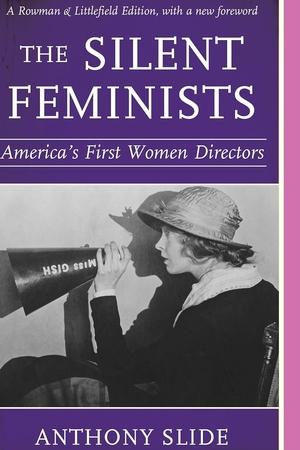The Silent Feminists: America's First Women Directors (1993) [NR]
Featuring:
Jane Wyatt, Simone Blaché, Priscilla Bonner
Written by:
Jeffrey Goodman
Anthony Slide
Directed by:
Jeffrey Goodman, Anthony Slide
Release Date:
June 30, 1993
Original Title:
The Silent Feminists: America's First Women Directors
Genres:
Documentary
Ratings / Certifications:
US: NR
Runtime: 45
A documentary exploring the origins of the pioneers of women directors during the silent era.
The title of this mid-feature documentary is deliberately double-edged. On the one hand, it describes the film's subject, female directors of the silent era, in remarkable abundance at that time - indeed, arguably the first great auteur was a woman, Alice Guy. On the other, it suggests feminists who cannot talk, women who have been written out of the film history books as easily as they were finally barred from the compartmentalised Hollywood that emerged with the coming of sound.The possibility of notable female input in direction came about through the haphazard growth of the American film industry, as the constant and increasing demand meant one could go from script girl or editor relatively quickly. Many famous actresses quickly became directors, following the model of their male counterparts, such as Chaplin.The documentary isn't really in any way linear - the most notable figures are discussed with clips from their films, and there are interviews with directors, stars and even the daughter of the aforementioned Guy. The directors talk about the period as a golden age of gender colour-blindness, it being perfectly natural and acceptable for egotisitcal male stars to take orders from a woman. A sniggering interview with Henry Hathaway, who, with John Ford began his career as an assistant to Lois Weber, suggests otherwise.The golden age ended with the coming of sound. The job mobility that marked the silent age vanished, and everything - screenwriting, editing, art direction etc. - became rigidly compartmentalised. This, and the rise in misogynistic male-dominated unions, meant that the mobility that led to direction was put on the brakes.Of course, it is one thing to resurrect unjustly forgotten figures; it is quite another to suggest they were any good. None of the footage shown even remotely compares with Griffith, Feuillade, Lang, Murnau, Eisenstein or Keaton, although one director did interesting things with split screen, Lois Weber had genuine talent beneath her mawkish, proselytising pictures, and Dorothy Arzner was as ruthless, bullying and exploitative as any Hawks or Preminger.What singles them out from their male peers - this continued to be true of maverick female directors like Ida Lupino - is their willingness to tackle subject matter that was not oppressvely generic, but domestic, human, close to the audience's experience, themes such as birth control, rape, abusive marriages, or prostitution. Hollywood, as it developed, preferred not to dwell on such themes, so the women went out with the bathwater.The closing narration claims that these women were not feminists as we know the term today, that they were quiet, agreeable and dignified. The insinuation is that today feminists are bolshy hyenas, unladylike, coarse. The film was written, produced and directed by two men.

